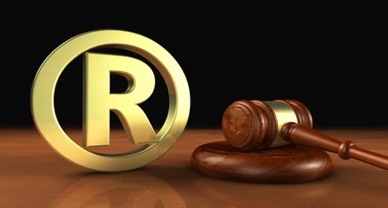Chanel, Inc. The luxury fashion And clothing brand
The plaintiff, Chanel, Inc. (“Chanel”), is an iconic fashion company based in New York known for its luxury fashion products and owns rights to several Chanel and CC monograms trademarks associated with the brand design. To maintain the brand’s prestige, Chanel authorizes its products to be only sold through their retail stores and carefully selected other high-end prestigious specialty stores like Neiman Marcus, Barney’s, Nordstrom, and Saks Fifth Avenue. While this is the case products such as handbags, Chanel’s fragrance, cosmetics, and sunglasses are only sold online at www.chanel.com and a limited number of prestigious retailer stores and websites. The brand was not involved with selling secondly handed or vintage goods. The defendant, The RealReal, Inc. (“RealReal”), is a California-based retailer specializing in luxury consignment, with four retail stores in New York City, Los Angeles & South Florida, and ten Luxury Consignments Offices across the country. Through its website and stores, RealReal offered its millions of customers and consignors a place to purchase and consign used luxury goods according to terms and conditions. Among these were purportedly genuine second-hand Chanel products, which in 2018 was acknowledged by RealReal as one of its most popular brands bought and sold through consignment.

This was followed by the Court granting RealReal an extension of time to respond to the Complaint on January 10, 2019, and the filing of an amended complaint (“First Amended Complaint”) by Chanel on February 1, 2019. In the First Amended Complaint, Chanel sought for redressal to prevent RealReal from 1) continuing to mislead consumers into believing that The RealReal has an affiliation or association with Chanel and/or that Chanel has approved of or authenticated the secondhand and counterfeit items being sold by RealReal, and 2) continuing to sell counterfeit Chanel products. The Court, after assessing the matter, partially denied RealReal’s motion to dismiss the First Amended complaint, as it was found that 1) Chanel’s allegation that RealReal marketed and sold counterfeit Chanel products was adequate; 2) RealReal’s advertising regarding the authenticity of the products it sells was false. However, considering that RealReal’s use of Chanel’s genuine trademarks is not likely to cause any form of customer confusion, and because Chanel has failed to prove the alleged injury to the public at large adequately, RealReal’s motion to dismiss the First Amended Complaint was granted concerning trademark infringement under 15 U.S.C. § 1114(1)(a), false endorsement and unfair competition under 15 U.S.C. § 1125(a)(1)(A)), and New York General Business Law (“GBL”) violations under its section 349 and 350. A subsequent motion in the matter was denied without prejudice in October 2020.
Allegation of trademark infringement against RealReal
Regarding the Allegation of trademark infringement against RealReal, the Court was of the view that Chanel’s investigation revealing the presence of counterfeit products, coupled with the customer complaints regarding the same, was sufficient enough to plausibly allege that RealReal directly infringed Chanel’s trademark. Further, it was also noted by the Court that Chanel had alleged sufficient factual content indicating RealReal’s sale of and advertising of counterfeit Chanel products, thereby proceeding to establish liability under 15 U.S.C. § 1114(1)(a) on a direct infringement theory (Chanel, Inc. v. Veronique Idea Corp., 795 F. Supp. 2d 262, 267 (S.D.N.Y. 2011)). Similarly, Chanel’s cause of action for false advertising under 15 U.S.C. § 1125(a)(1)(B) was also granted by the Court on the grounds of sufficient factual content submitted by Chanel. However, Chanel’s claims for infringement, false endorsement, and unfair competition under 15 U.S.C. § 1114(1)(a) and 15 U.S.C. § 1125(a)(1)(A)) respectively, were denied by the Court citing Tiffany (NJ) Inc. v. eBay Inc. (Tiffany (NJ) Inc., 600 F.3d at 103)), where it was observed that the Lanham Act “does not prevent one who trades a branded product from accurately describing it by its brand name, so long as the trader does not create confusion by implying an affiliation with the owner of the product.” Applying the same, the Court observed that; Firstly, although RealReal’s secondary market offerings may affect Chanel’s primary market sales, the contrary was suggested in the Complaint submitted by Chanel, where it was mentioned that secondary fashion markets bolster primary markets. Secondly, as made clear in their First Amended Complaint, Chanel does not engage in second-hand or vintage Chanel goods, thereby removing RealReal’s business from the scope of direct competition against Chanel. Thirdly, Chanel had not identified any evidence of actual customer confusion or bad faith on behalf of RealReal while adopting the Chanel trademark. Considering the kind of sophisticated nature the luxury fashion market beholds with various levels of stakeholders from celebrities to stylists and influencers, the Court was of the view that it was highly unlikely for a consumer buying a second-hand product from RealReal, confused the nature/source of the products, or its affiliation or lack thereof with Chanel. Further, with respect to Chanel’s Section 349 and 350 claims under the New York Common Law (deceptive and unfair trade practices, false advertising), the Court was of the view that Chanel failed to demonstrate that the dispute involves injury to the public interest, that is above an ordinary infringement, which was consequential to the nature of their Complaint, thereby dismissing it.
Author: Saransh Chaturvedi an associate at IP And Legal Filings, in case of any queries please contact/write back us at support@ipandlegalfilings.com.



